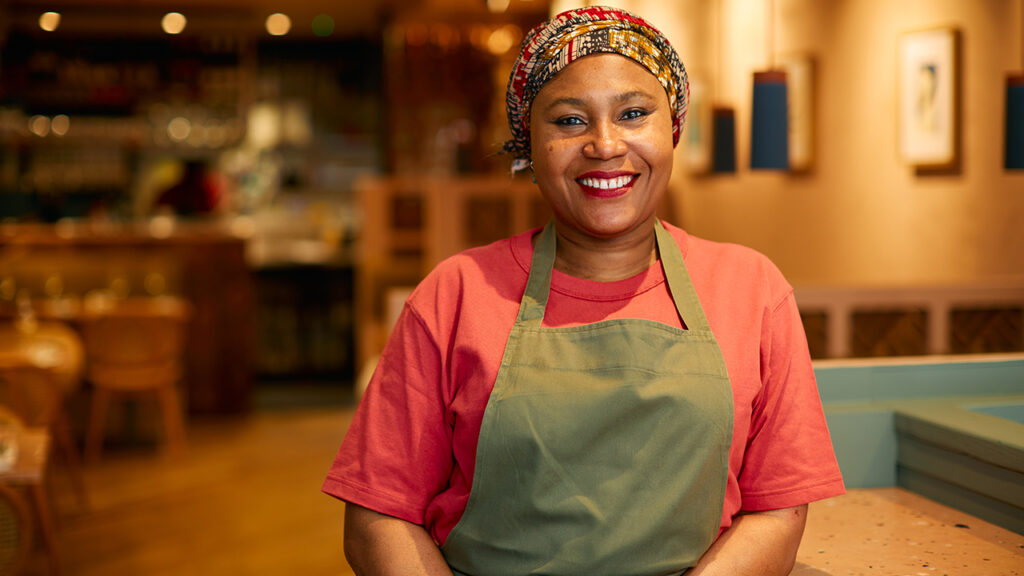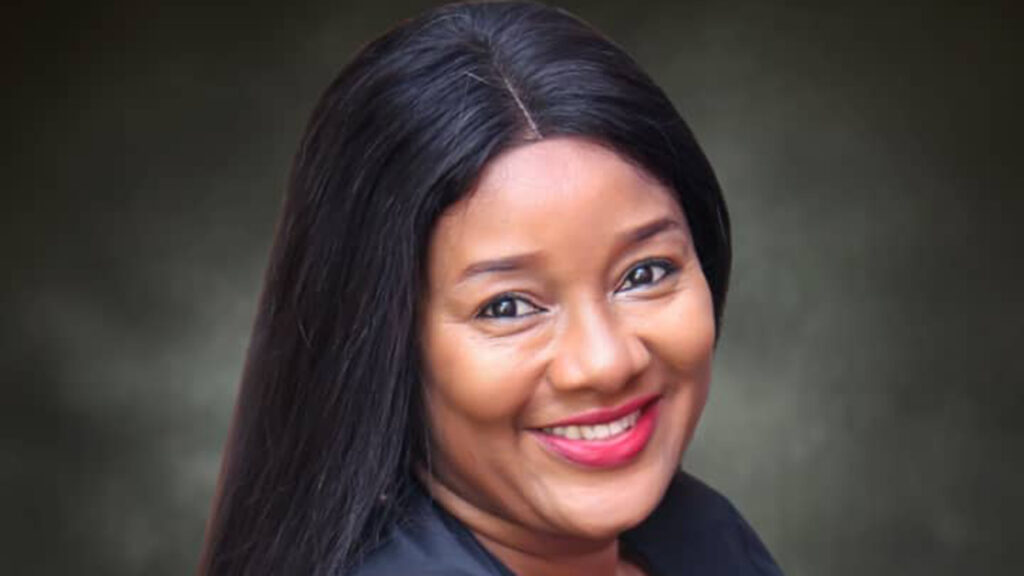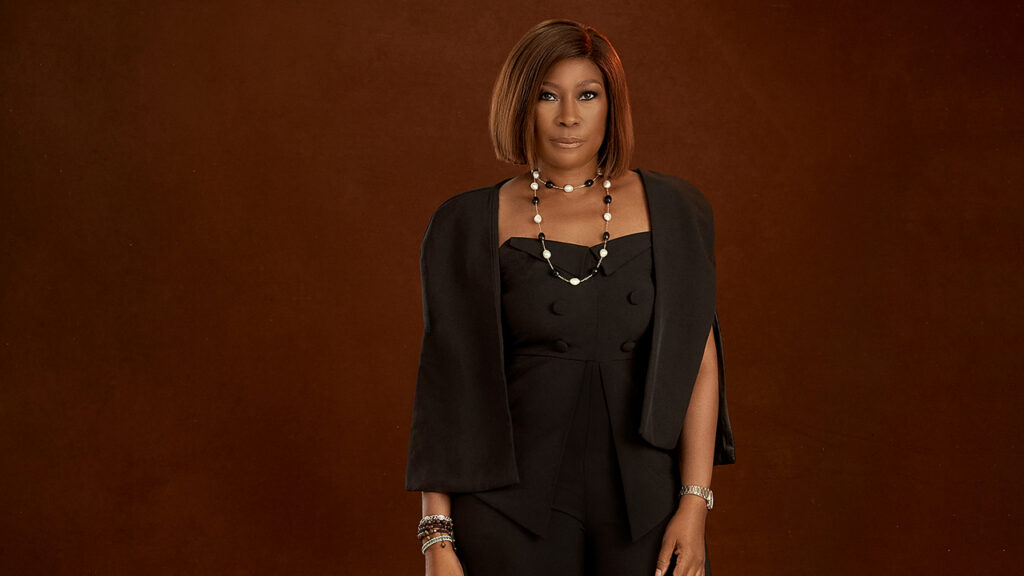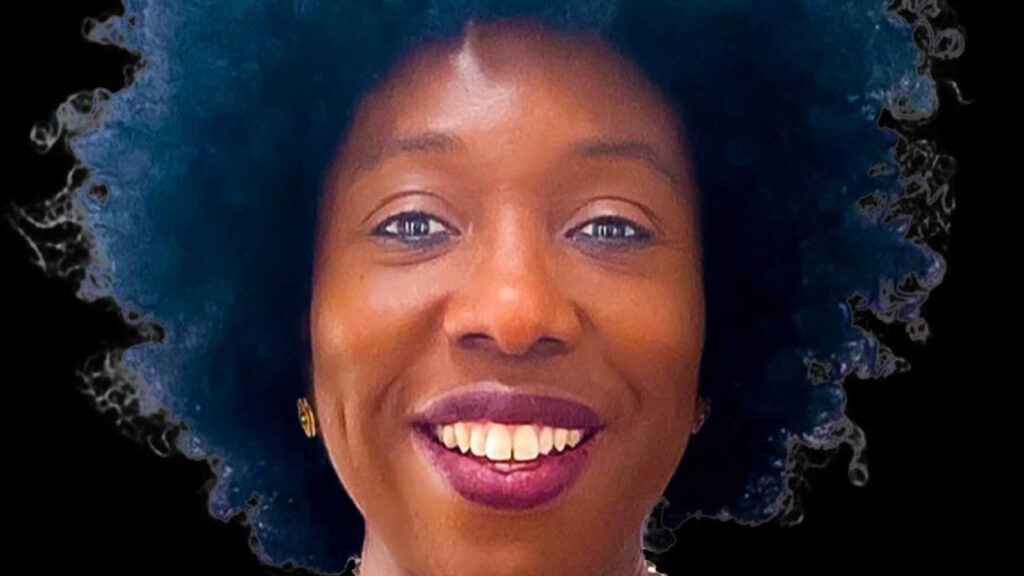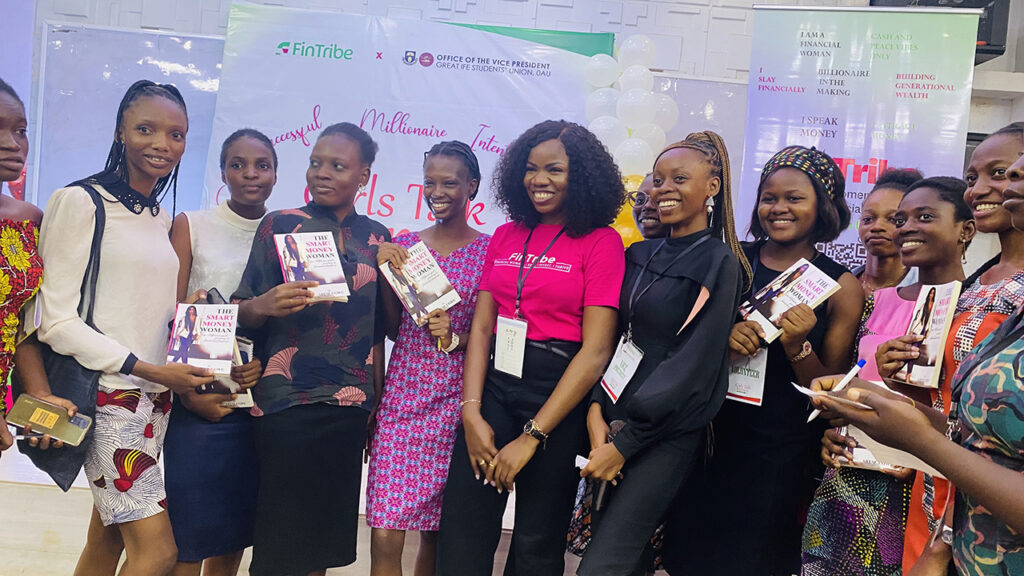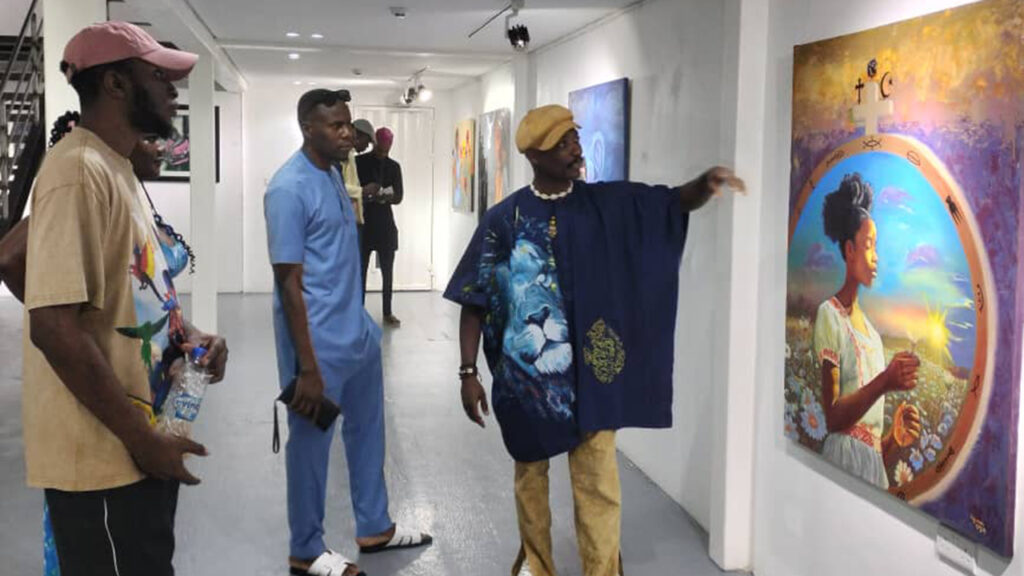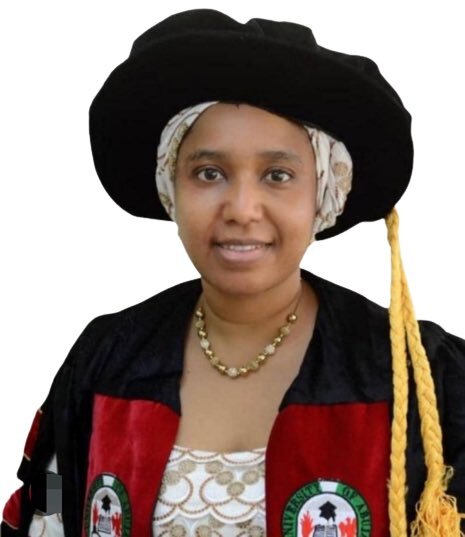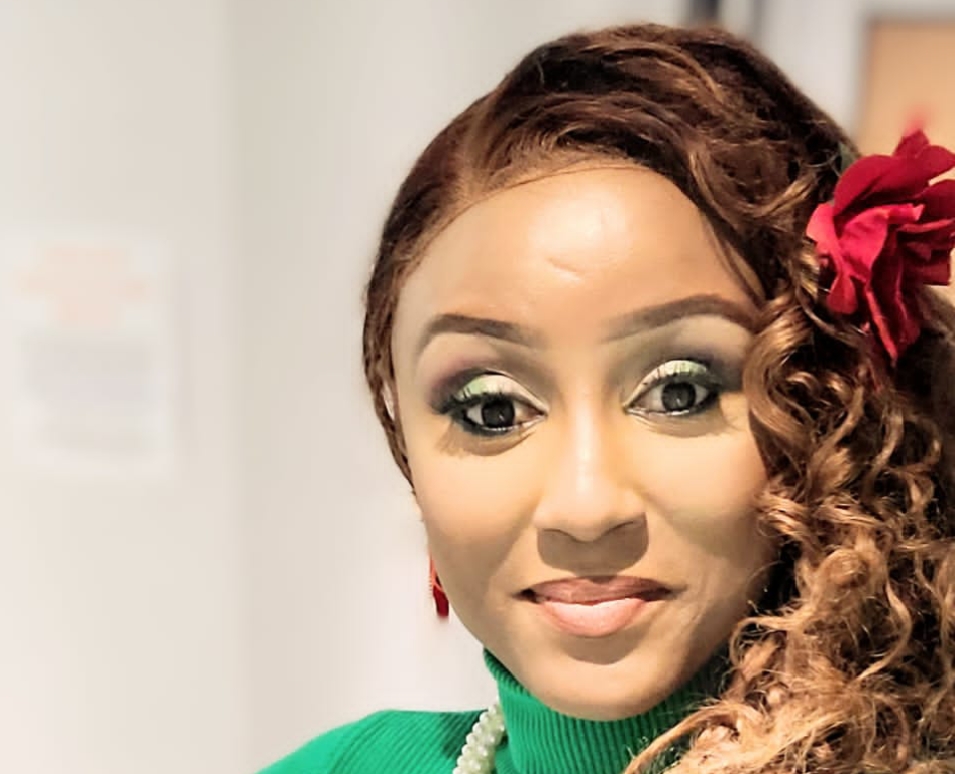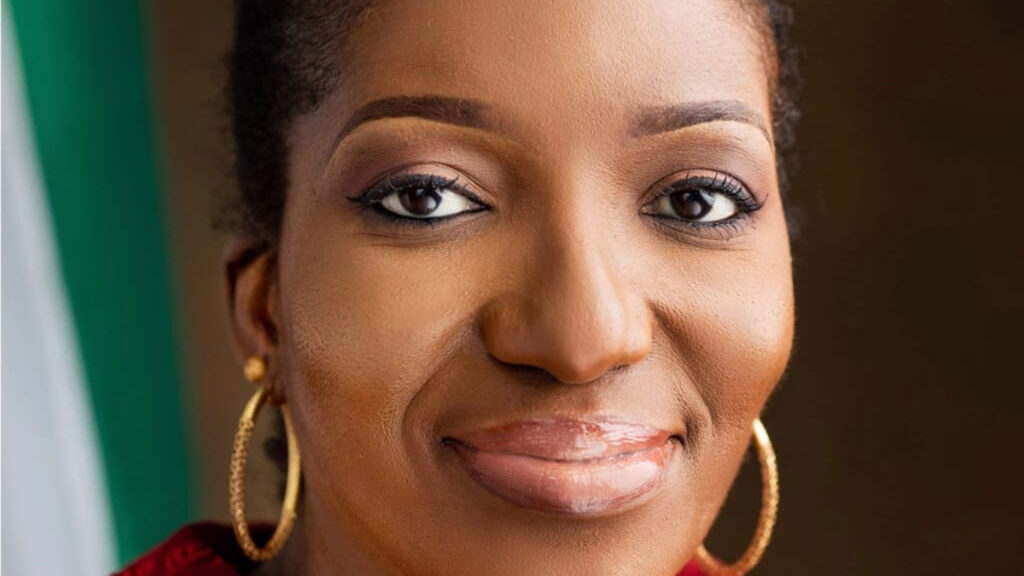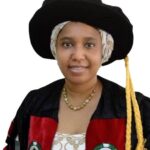
Professor Aisha Sani Maikudi is the current Deputy Vice-Chancellor (Academics), University of Abuja. She is a Professor of International Law in the Department of Jurisprudence and International Law at the Faculty of Law of the university. An origin of Katsina State, she holds an LLB degree from the University of Reading, United Kingdom (UK), LLM from the London School of Economics, UK, BL from the Nigeria Law School, Abuja and Ph.D from the University of Abuja.
In 2008, Maikudi joined the University of Abuja as Lecturer Two and became the first female and youngest Head of Department in 2014; first female and youngest Deputy Dean, Faculty of Law in 2018 and the pioneer Director, University of Abuja International Centre in 2019. In 2021, Maikudi became a Professor of International Law. To date, she is the youngest female Professor of the University of Abuja as well as the first female Professor of Law in the North West. She specialises in United Nations Law and has written extensively in the area. Maikudi floated a Postgraduate course on United Nations Law and has supervised numerous undergraduate and postgraduate works. She has also taught Company Law for over 15 years and is well-versed in its mechanics.
Maikudi has participated in several academic conferences and training worldwide. She is a member of various professional associations include the Nigerian Bar Association, the Nigerian Law Teachers Association and the International Federation of Women Lawyers. In this interview with IJEOMA THOMAS-ODIA, she shares the secrets of her successful career in the tertiary education sector.
Take us through your career path and what informed your interest in Law?
I have to start by thanking God for my wonderful parents who believe in education and ensure that they provide the leverage for their children to excel in their chosen academic endeavours. My passion for law was right from early childhood. I grew up seeing my father reading books and took an interest in reading too, which my father nurtured. As a child, I would pour through countless books. I especially enjoyed reading books with a legal background and developed a passion for justice. I am stimulated by intellectual challenge, hence my enthusiasm for law because lawyers need to adapt their way of thinking in different cases and present evidence in creative yet logical ways in a law system that is always changing.
I find law an excellent match for my personality and strengths. One needs a great memory, excellent communication and argumentation skills, the ability to analyse and interpret complex information, write concisely and accurately, form sound arguments to communicate with confidence as well as research and negotiation skills. Law is such an important part of our everyday life and applies in all our daily transactions. Law is basically omnipresent. I am lucky to have all the support from my parents and I have come across people that gingered me on. As a child, whenever my mum wanted to tell me off, she would say, ‘sannu lawyer’ (well done lawyer)!
Being the youngest female Professor of the University of Abuja, as well as the first female Professor of Law in the North West and the University of Abuja, what experiences prepared you for this feat?
I had a clear vision of what I wanted to achieve so I set realistic goals, and most importantly, did not give up. Several factors helped me. They include a combination of good education, a strong mentorship and support network for guidance and development, resilience by learning from shortcomings and persevering in the face of adversity by adopting a proactive approach to opportunities and challenges.
How have you continued to stay motivated in the cause of your career?
Motivation is a dynamic force that requires continuous effort and self-awareness. To stay motivated, I try to balance personal fulfilment and professional growth by finding passion in the purpose of my work through embracing opportunities for learning and skill development to stay engaged and relevant in my field. I also stay connected with a supportive network of family, colleagues and mentors. In addition, I am receptive to change and advice, while I take up challenges as opportunities for growth rather than as obstacles.
With an extensive career in law, what is your take on the judicial system in the country and the intricacies that play out especially with political cases?
Opinions on the judiciary system in Nigeria, particularly in political cases, are very diverse. As a lawyer, I look at facts and law but public perception may be influenced by individual experiences, media coverage and broader societal factors. This is where the problem arises between ‘judgements’ and ‘justice’ and so some may commend the judiciary for upholding the rule of law, ensuring fair trials and making impartial decisions, while some may express concerns about issues such as delays in the legal process, allegations of corruption, challenges in ensuring fair and impartial judgments and perceptions of political influence. Political cases, given their sensitive nature, often come under scrutiny for potential bias or manipulation. Like any other sector, there is a need for reforms to ensure a more efficient and transparent system for accountability, and the effective handling of cases, which are critical aspects that citizens often expect from the judiciary. However, it is important to note that addressing challenges and working towards a fair and impartial judicial system is an ongoing process that involves collaboration between legal experts, policymakers and the public.
Do you think that what is being taught in institutions is relatable to practice?
The relatability of what is taught in institutions to actual practice varies. While academic curricula aim to provide a solid foundation of theoretical knowledge, the practical application of knowledge may differ based on the specificities of real-world scenarios. Continuous efforts by institutions to align their curricula with industry needs can enhance the practical relevance of education to the demands of the workforce. Experiences, internships and hands-on learning opportunities can bridge this gap, offering students a more nuanced understanding of how concepts apply in professional settings.
This is why at the University of Abuja we try to ensure that higher education is linked to current market needs by reaching out to industry to expand our understanding of the needs of industry and linking these needs to academically sourced solutions. We now place an emphasis on industry-focused degree programmes at all academic levels.
How have we done this? Entrepreneurship is at the centre of the training we give the University of Abuja students so they can begin to create wealth even while they are on campus. Entrepreneurship is different from vocation skills of tailoring, fashion design or brick making. Entrepreneurship is finding whatever gap exists in a community and filling that gap thereby creating wealth for yourself. An entrepreneur employs people with skills needed to deliver services. There are thousands of tailors and fashion designers that are poor but an entrepreneur is wealthy and constantly discovering gaps and always filling those gaps as he or she is not the labourer, rather, he or she is the employer of labourers and employees of skilled workers. It is compulsory at the University of Abuja for our students to create and register their businesses with the CAC otherwise they cannot graduate from the university.
For universities to remain relevant, they need to innovate by training graduates to fit the job market and concretise and try out concepts created in the real world. On the other hand, for industries to successfully innovate, they cannot exclusively rely on their internal research and development. They have to realise that universities can open up great opportunities to an enormous global pool of talent and skills. We have several MoUs with industry such as the Abuja Chamber of Commerce, the National Agency for Science and Engineering Infrastructure (NASENI) and FrieslandCampina WAMCO Nigeria Plc.
How different is our law practice from the international scene and what can we infuse into ours to further improve it?
Our legal practice has unique characteristics compared to the international scene. Some differences include procedural aspects, legal traditions and specific laws. To further improve our practice, we can continuously assess and reform laws to align with contemporary needs and international standards. We can embrace technology for legal research, case management and court processes to enhance efficiency and transparency. We can strengthen mechanisms to ensure the independence of the judiciary thus fostering trust in the legal system; promote alternative dispute resolution mechanisms to expedite case resolution and reduce the burden on the courts; as well as collaborate with international legal institutions to facilitate knowledge exchange and promote best practices.
What challenges did you face as a woman with northern background in the course of your work and how did you surmount them?
Like women in various regions, I faced challenges such as gender bias, institutional biases, cultural expectations and potential stereotypes. The typical path for academic career advancement does not allow for family responsibilities such as child rearing or caring for elderly family members. Women are still doing most of the caring, educating, cooking and cleaning in homes. These responsibilities tend to reduce the extra hours available to women in evenings and at weekends to focus on publications and research projects, among other activities, which are critical when it comes to promotion.
To surmount these challenges, I had to build a strong professional network and seek mentorship from individuals who can offer guidance and support and navigate cultural expectations with diplomacy by finding a balance between cultural norms and professional aspirations. I actively challenged stereotypes and biases by showcasing my abilities and contributions to the workplace. I also continuously enhance my skills and education to demonstrate competence and expertise in my field. By proactively addressing these issues through a combination of personal resilience, advocacy, networking and skill development, I could leverage on my strengths to overcome the obstacles in my professional journey and thrive in my career. Luckily, I had access to good education and both family and administrative support.
 How do you combine your many roles, especially being a wife and mother, and still be at your best?
How do you combine your many roles, especially being a wife and mother, and still be at your best?
Balancing multiple tasks, such as being a wife, mother and professional can be challenging. It requires effective time management by creating schedules, setting realistic goals and utilising time-saving techniques by identifying and prioritising tasks based on urgency and importance, both at work and in personal life. I do not like ‘African time’. I have a strong support network of family, friends and colleagues who provide assistance and understanding and delegate tasks at home and work to share responsibilities and reduce the workload. I try to maintain open communication with family, colleagues and supervisors about my commitments and expectations by setting realistic goals, being adaptable and willing to adjust plans when unexpected challenges arise both at home and work. I also nurture relationships with my family by establishing clear boundaries between work and personal life to prevent burnout and maintain a healthy balance.
For example, I have an outing with my immediate family every Friday, have my extended family over every Sunday and meet with friends every other week. I always tell myself that achieving a balance is a dynamic process. So, it’s okay for me to reassess and adjust strategies as circumstances evolve.
How can we get more women to become successful and rise to the top? What tips do you have for younger women?
Several things can be done to support women in becoming successful and reaching leadership positions. These include education and skill development to stay competitive in their chosen fields. For example, women-friendly scholarship packages could be introduced. These may include extending the cut-off age limit and offering scholarships that allow women to travel with children to study in a different location, for instance. In addition, having mentorship programmes and networking opportunities to connect aspiring women with experienced professionals who can provide guidance and support. Building a strong professional network by attending events, joining professional groups and connecting with like-minded individuals is also important. Also, supporting initiatives that promote gender equality in the workplace and challenging discriminatory practices by advocating for flexible work arrangements that accommodate work-life balance, enabling women to manage both professional and personal responsibilities effectively. Equally, providing training programmes focused on leadership skills, decision-making and effective communication to prepare women for leadership roles and similarly, creating inclusive environments by fostering workplaces that are inclusive and diverse, where women feel valued and have equal opportunities for career advancement. By fostering a supportive environment and providing resources for education and development, we can contribute to more women achieving success and rising to leadership positions.
To young women, I say, confidence, self-advocacy and resilience are key. Believe in yourself and your capabilities. Learn to advocate for your accomplishments and contributions. Develop resilience to overcome challenges. Understand that setbacks are a part of the journey and use them as opportunities for growth.
What key lessons have you learnt in your years of practice?
After several years of teaching and practicing law, I’ve learnt that upholding ethical standards is paramount to maintaining professional integrity and credibility. Emotional intelligence is vital to understand and manage emotions, both mine and others’, so that communication and relations are enhanced. Sound judgment and effective decision-making skills are crucial for navigating complex human and legal situations. As the legal landscape is always evolving, being adaptable to changes in laws, technology and practice is crucial.
What do you hope to see women do differently, especially in Nigeria?
I hope to see women more confidently pursue leadership roles, challenge gender norms and actively contribute to diverse fields to cultivate a more inclusive and equitable society. We can do this by actively participating in initiatives and movements that advocate for gender equity and challenge discriminatory practices. Encouraging women to embrace their capabilities, pursue their ambitions and participate fully in all aspects of life. By building a strong network of support among women, fostering mentorship and advocating for one another in professional settings. This way, women can be supported in breaking traditional barriers and stereotypes.
What is your life mantra?
In one word, ‘sabr’ (patience). Indeed Allah is with those who are patient. I ensure I do my best every day and I know that my best varies.


